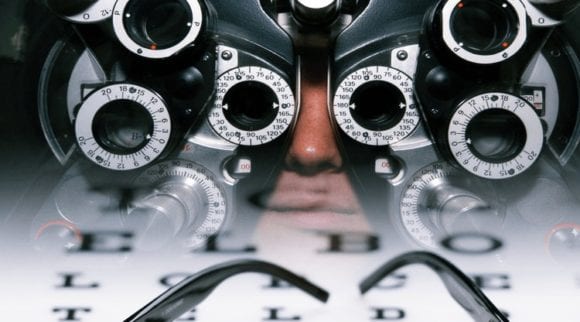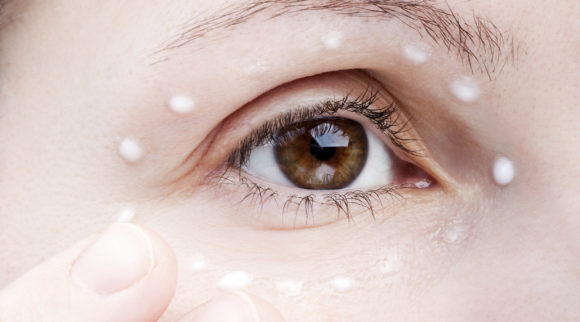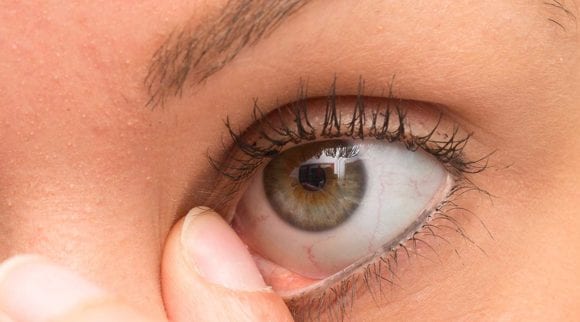Does Manuka Honey for Blepharitis Work? | Eye Love Cares
Manuka Honey For Blepharitis… Can It Work For You?
Are you wondering if manuka honey for blepharitis will work to ease your eye inflammation and other common symptoms of blepharitis? It just might, so read on to learn more and see if it’s the right option for you to try. Anytime you have an issue with your eyes, it’s a cause for concern. Even the smallest particle that finds its way into the eyes can cause extreme discomfort in even the toughest individual. Because of the delicate nature of your eyes, anytime you are experiencing strange symptoms it’s always a good idea to visit your ophthalmologist or optometrist immediately.
While we all know that eye health is not a laughing matter, what would your reaction be if your trusted eye doctor prescribed that you smear honey on your eyelids to treat your symptoms? Yes, you would probably laugh. But it’s not as crazy as it sounds. If you have crusty eyelids and have received a diagnosis of blepharitis, you may try to use manuka honey for blepharitis symptoms.
Before you spread sweet, sweet honey on your eyelids, let’s learn more about blepharitis.
In general, blepharitis is the inflammation of the areas around the eye. It’s more of an issue with the skin and pores and less of a problem with your eyes themselves. Even though blepharitis affects the tissue surrounding your eyes, it can at times disrupt your vision. The symptoms can also be very uncomfortable.
Symptoms of Blepharitis
Before you get to the point where you’re wondering if Manuka honey for blepharitis is a good option, you’re likely dealing with a variety of irritating symptoms. The symptoms of blepharitis usually include irritated and itchy eyes. Other symptoms of blepharitis include swollen eyelids, redness on the margins of the eyelids, and scales encircling the lashes. Those suffering from the condition may have more tears than usual, or they may describe having fewer tears than usual. In addition to having flaky skin around your eyes and eyelids, you may also have styes as well. Your eye doctor may notice staining, erosion, and infiltrates in the lower portion of the cornea.
Patients may feel that there is a foreign body in their eye, and their eyelids may stick together. Sufferers may have a sensitivity to light and experience blurred vision as well.
Sometimes patients suffer the symptoms once in their lives, but others may suffer from this condition chronically.
Causes of Blepharitis
Blepharitis is caused by one of two types of bacteria: either Staphylococci (also known as staph) or Moraxella. The bacteria can cause an infection, or simply the overgrowth of the bacteria can cause blepharitis.
There are other causes of blepharitis as well. A clogged or blocked oil gland can cause it in your eyelid, a hormone imbalance, or an allergic reaction to cosmetics or contacts. Those suffering from rosacea, psoriasis, or seborrheic dermatitis (dandruff) are also more likely to have blepharitis as well. Eyelash mites can also cause the inflammation of the tissue around the eyes.
Typical Treatment of Blepharitis
Manuka honey for blepharitis is not the typical treatment regimen, but it has developed as a go-to method in recent years. The regular treatment of blepharitis may include antibiotics (topical or oral) and doctors may also prescribe an antibiotic/steroid ointment be applied at bedtime or up to three times a day.
Antibiotic eye drops or ointments for blepharitis may include erythromycin, bacitracin, polymyxin-bacitracin, gentamicin, or tobramycin. This treatment is used to control the infection and keep it from spreading, although this is not always necessary.
Your doctor may also prescribe artificial tear supplements to be used as needed. The eye drops are not only used to alleviate symptoms but they will also re-establish ocular surface integrity.
Home Remedies for Blepharitis
While you may be most comfortable following the advice of your doctor on how to treat the symptoms of blepharitis, keep in mind that some sufferers swear by home remedies they have used to alleviate the itchy symptoms. This is where Manuka honey for blepharitis enters into the discussion.
What is Manuka Honey?
Bees in Australia and New Zealand that pollinate the Manuka bush make Manuka honey. This honey contains hydrogen peroxide along with an antibacterial substance known as methylglyoxal (MG). While MG occurs in most types of honey, Manuka honey contains much more than regular honey. The higher the concentration of MG, the more antibiotic qualities the honey has.
Since this honey fights bacteria and bacteria causes blepharitis, it only makes sense that you use honey to treat your crusty, irritated eyes.
How to Use Manuka Honey to Treat Blepharitis
Using food to treat disease is nothing new. Usually, when food is used as a treatment though, it is consumed. Those using Manuka honey to treat blepharitis will utilize it as a topical cream.
First, purchase the most potent Manuka honey you can find. To make your life a little easier, it is available on Amazon.
Next, dip a clean swab in the honey and apply it over the infected eyelid. Coat the entire length of the lid.
With a different, clean swab, apply a liberal amount of Manuka honey over the other eyelid. Make sure you use a clean swab. You don’t want to move the bacteria from your eyelid to the swab and then into your new and expensive jar of honey.
Leave the honey on your eyelids for at least 20 minutes before removing it with a damp cloth. Consider repeating this treatment within 24 hours to see the most favorable results. You may even try to leave the honey on your eyelids overnight if you are not concerned about waking up in a sticky mess. Chances are if you have blepharitis, you are used to waking up with sticky eyes anyway.
Other Natural Remedies for Blepharitis
Manuka honey for blepharitis is one of several natural options used to treat blepharitis. Here are some other natural remedies for blepharitis.
You may consider using hypochlorous acid to alleviate your irritated and crusty eyelids, such as what comes with blepharitis. Hypochlorous acid spray is perfect for deep cleaning around your eyes, and is a great solution for skin irritation you have elsewhere.
Cleaner eyelids help soothe irritated eyelids, bothersome eyes, and itchy, dry skin conditions. You can use it anywhere that you have skin.
Simply clean the eyelids of any debris or makeup and spray closed eyelids with the solution. Gently rub into the upper and lower lid and lash margin (or just let it dry…no need to rinse!) Repeat morning and evening for best results.
Click here to check price and reviews on Amazon
Tea tree oil
You may consider using tea tree oil to alleviate your blepharitis symptoms as well. Tea tree oil also has antimicrobial properties and is particularly useful in killing demodex eyelash mites.
You have to be careful with tea tree oil because it can burn the eyes, so you need to make sure you’re diluting it properly or purchasing a tea tree oil remedy that is formulated for the eyes, like this foaming tea tree face wash and eyelid cleanser or this bar soap.
To make your own (USE CAUTION), mix three to four drops of tea tree oil with two tablespoons of olive, castor or coconut oil. After you mix the oils together, dip a clean cotton ball into the oils and gently clean your eyelids. Use a new cotton ball to clean the second eyelid. Leave the oils on your eyelids for one to two minutes before washing the mixture off with cold water. Repeat this process twice daily until the symptoms are alleviated.
Or it might be easier to use a commercially available tea tree oil face wash or tea tree oil bar soap.
If you don’t have tea tree oil, but you have castor oil, consider using that to help alleviate your symptoms as well. Make sure your castor oil is 100% pure and hexane free, as well as organic, to use it as a treatment, though.
Dip a cotton ball in the castor oil and apply it over your closed eyelid and affected area. Use a clean cotton ball soaked with castor oil for the other eye as well. Leave the oil on overnight.
Coconut oil
Coconut oil also can restore your eye health. Remember to use organic, pure virgin coconut oil with no additional ingredients added. Leave the coconut oil on the affected area for 20 minutes before washing it off with cold water. This can be done two to three times a day to help alleviate blepharitis symptoms.
Eyelid Hygiene
While some may be uncomfortable using manuka honey for blepharitis, or other natural remedies to treat symptoms occurring near the eyes, the least you can do is follow a hygiene regime to help control the symptoms. You don’t need fancy honey or pure oils for this treatment. You just need a clean washcloth and warm water.
Patients who are suffering from symptoms of blepharitis are encouraged to use a warm compress for at least five minutes to the eyelids. Many doctors recommend doing this by heating up a commercially available eye make and placing it over the eyelids. While this will alleviate some of the symptoms, it will not remove the bacteria from the eyelid that caused the issues in the first place. This is why it may also be necessary to use an eyelid scrub as well.
Benefits of an Eyelid Cleanser for Blepharitis
An eyelid cleanser will remove eyelash debris, bacteria, bacterial toxins, and oil from the affected area. Traditionally, doctors would recommend using baby shampoo for this process, but this is old news. There are now several scrubs designed for the eyelids that are commercially available. These washes are available in foams, gels, sprays and pre-moistened pads. The Heyedrate Lid and Lash Cleanser is an effective hypochlorous acid cleanser which works well without irritating the delicate eyelids.
While you are cleansing your eyelids, it is a good idea also to concentrate on top of the meibomian glands. The glands may be clogged, and gently massaging them may dislodge any contaminants within them.
If you suffer from chronic blepharitis, you may need to clean your eyelids daily for the remainder of your life. To clean the eyelids, use an eyelid cleanser instead of baby shampoo. Keep your eyes shut while cleaning them. Gently rub the solution along the margins of the eye. If soap is used, make sure you rinse it off with cold water and dry the eyelids with a clean towel.
How to Give Your Eyes a Break if You Suffer from Blepharitis
Besides cleaning your eyelids thoroughly each day, there are other ways you can treat your eyes with care.
First, protect yourself from your computer’s screen. Lights from the purple/blue spectrum may allow you to adjust your computer and phone’s brightness, but those same lights may be harmful to your eyes. Protect your eyes from this spectrum by either changing your computer’s settings to the “nighttime mode,” purchasing a filter that goes over your screen, or purchasing a pair of computer eyestrain glasses (like Eye Love’s Blue Light Blocking Glasses). If you buy a filter for your computer’s display, make sure it does more than reduce its glare. Check to see if it has an amber tint to help counteract the blue light waves.
Pay attention to where the monitor is placed in relation to your eyes. The monitor should be set below eye level to avoid a wide eyelid aperture. A wide eyelid aperture will cause your eyelids to dry out and bring undue stress to your eyes. When you are a chronic sufferer of blepharitis, you don’t need additional strain on your eyes.
Improve Eye Care Tips -
Another way you can care for your eyes is to blink more, especially when staring at a screen. The more you stare at a screen, the less often you blink. Blinking refreshes your eyes and keeps them moistened. Be conscious of this, and try to remember to blink more often when you are sitting in front of a screen.
Reduce the amount of time your eyes have to adjust to brightness and glare when you are outside. Wear sunglasses and hats with bills when outdoors.
Pay attention to the lighting around your computer and television screen to keep your eyes from having to work extra hard by looking through a glare. Doctors recommend that you never use a computer or watch television in a completely dark room. This habit can be hard on your eyes, as you continually have to adjust from darkness to the bright light from your screen.
Besides having quality lighting, you also need to pay attention to the air surrounding you. Those suffering from blepharitis already have dry eyes. Sitting near a vent or fan will dry your eyes out even more. Constant wind blowing on or around your face can cause eye dryness as well. Constant air movement can dry out the skin too.
Eye Strain -
Any eyestrain is difficult for those suffering from blepharitis. Pay attention to the size of your work area on your computer’s screen. Adjust your font, so it is as large as possible on your computer screen. You can also change the size of your font on your mobile device as well, so you don’t have to squint to read your texts. If you are having a difficult time seeing your computer screen, your body will compensate in other ways without you even realizing it. Your shoulders will slouch, and your brow will crease. This will cause eye strain as well as an aching body.
If you suffer from dry eyes, make sure you give your eyes a rest periodically. Follow the 20/20/20 rule. Every twenty minutes while you are working in front of a screen, look 20-feet away for 20 seconds. This could give your eyes a necessary break they need to feel refreshed even at the end of a long day at work.
Even if you don’t take a 20/20/20 break, studies show that while the common break time consists of two 15-minute breaks throughout the day, having four additional five-minute breaks can significantly reduce eyestrain. Show your boss evidence that small breaks enjoyed throughout the day do not lower your productivity. In fact, the work output increases when you experience a few more minutes of rest each hour.
Hydration
Also, if your eyes are always tired, make sure you are staying hydrated. Drink a lot of water throughout the day. Staying hydrated is the key to eliminating many health problems. Keep a water bottle near you at all times to remind yourself to take a sip, and try to drink half your body weight in ounces of water per day.
If you find yourself living in a dry environment, help protect your eyes by using a humidifier. This is true, especially during the winter. Humidifiers help put moisture in the air and keep your eyes from working so hard to stay lubricated. Humidifiers not only help get rid of blepharitis, but it also helps with other skin diseases that occur on other parts of your body.
How Do You Prevent Blepharitis?
While there is little available to prevent this condition, steps can be made to control the severity of the inflammation. Check in with your doctor as soon as symptoms appear to help minimize the degree of infection. Treat your symptoms and lower the likelihood of complications.
While daily eyelid cleaning can help alleviate symptoms of blepharitis, there are other things you can do to keep it from coming back.
If you suffer from chronic eye irritation, you may need to consider not using eye makeup, especially mascara and eye shadow. If this is not a reasonable option for you, use free and clear formulas of your favorite makeup and replace the makeup and your brushes often. Remember not to share makeup products with others as well.
Remove your contacts each night. Consider purchasing daily disposable contact lenses, so your eyes enjoy a fresh pair of contacts each day. Never sleep in your contacts if you are a sufferer of blepharitis.
Your doctor may also mention other ways to promote good eye health. If you are a smoker, consider quitting. Smoke irritates the eyes of you and others around you. Of course, smoking can interfere with the excellent health of your eyes as well as other areas of your body.
Treat your dandruff. Dandruff can often migrate to your eyebrows and eyelashes. This can cause blepharitis. If you stop dandruff at the top of your scalp, it will be less likely to move lower down on your face.
Diet & Food -
Also, consider your diet. Try to eat a diet rich in Omega-3 fatty acids. These fatty acids are found in wild caught salmon, mackerel, sardines, tuna, anchovies, and herring. Don’t worry if you do not like seafood. You can also take oral supplements of Omega-3 in the form of fish oils, such as the Heyedrate Omega-3 for Eye Health. You may also find supplements at your local health food store that are marketed to promote eye health. These supplements contain Omega 3 fatty acids, flax seeds, and other ingredients.
Foods that are essential to good eye health can be eaten instead of taking supplements. Nuts and legumes are good for eye health as well. Consider consuming flaxseed, walnuts, Brazil nuts, cashews, peanuts, and lentils. Put chia seeds and hemp seeds in your smoothies. Eat citrus fruits such as lemons, oranges, and grapefruits. Make salads with leafy greens including kale, spinach, and collards. It’s no surprise that carrots are good for eye health, but did you know sweet potatoes are beneficial as well? Eggs can also be essential in maintaining eye health too, so don’t forget to include protein with your meals.
What About Manuka Honey for Blepharitis?
Some readers may note that Manuka honey is not on the list of foods to eat to promote eye health. Why is this? Isn’t this article supposed to be about the healing properties of this ancient food? As noted earlier in this article, Manuka honey should be used as a topical remedy for blepharitis. The healing properties are not necessarily enacted upon ingesting it, at least for blepharitis.
What Other Health Ailments can be Treated with Manuka Honey?
For generations, Manuka honey has been used to treat wounds, burns, and other sores. The U.S. government agrees. In 2007, the FDA approved Manuka honey as a viable wound-care option. This type of honey creates a natural moist barrier to keep wounds free from contaminants. This barrier and added moisture allow the wound to heal faster and can decrease a patient’s pain.
Manuka honey not only prevents a wound from getting an infection, but it is also considered a natural remedy used to treat infections that are already occurring. This specific type of honey has been used to treat Staphylococcus aureus, which is commonly known as MRSA.
Besides spreading Manuka honey on wounds and infections, you can also consume it to receive health benefits as well. Manuka honey even helps your teeth! This sounds counterintuitive, but some say it is true. Manuka honey fights bacteria that may cause periodontal diseases. These bacteria are associated with plaque formation, gum inflammation, and tooth decay.
Benefits -
We have all heard that consuming honey can help alleviate sore throat symptoms. Manuka honey has the same effects on a sore throat as regular honey does. Manuka honey also has the added benefit of attacking the bacteria in the throat that could be causing the pain. This is an example where consuming the honey not only alleviates symptoms, but it also helps get rid of the bacteria causing the infection.
Manuka honey also improves digestion. Consuming the honey can help stop constipation, diarrhea, abdominal pain, and irregular bowel movements. As we know, Manuka honey helps fight against harmful bacteria that may be causing these abdominal symptoms.
Other articles throughout the internet make claims regarding Manuka honey and cancer treatment. Please be cautious of any product that makes these claims.
Manuka Honey to Treat Other Skin Conditions
As stated earlier, blepharitis is more of a disease of the skin than a disease of the eyes. This means that Manuka honey can also be used to fight other skin diseases as well. Those who have suffered from eczema and psoriasis know how painful and itchy the symptoms can be. Millions of dollars are spent each year to find the right combination of treatments to calm skin irritation. Consider using Manuka honey topically to treat these skin conditions as well.
Manuka honey is an anti-inflammatory, so it will reduce the swelling from skin irritations. It also reduces bacteria, which may be present in eczema infections. Amazingly enough, Manuka honey calms the skin down and helps eliminate the itchiness ever present when suffering from a skin condition.
Risks of Using Manuka Honey for Blepharitis
Any time there is a substance that people claim will cure “whatever ails you,” it is best to approach the treatment with cautious optimism. Have a positive attitude about the treatment, but be prepared with another treatment option if it doesn’t work.
Bees make Manuka honey. If you are allergic to bees or any other type of honey, assume that you will react negatively to Manuka honey as well.
If you have diabetes, talk to your doctor before adding Manuka honey to your diet. It is high in sugar and may cause your blood sugar to spike. Interestingly enough, some people with diabetes have reported using Manuka honey to treat wounds on their feet. Foot wounds that do not heal are common in diabetic patients. It is unclear whether applying honey to the wound of a diabetic causes a spike in blood sugar or not.
Other Notes About Blepharitis
Even though the name sounds scary, do not be frightened upon hearing the diagnosis of any form of blepharitis. This is one of the most common conditions eye doctors see in their offices. In fact, some researchers indicate that this condition is present in almost 47 percent of patients visiting an ophthalmologist. There are many treatment options to fight against this condition as well.
Even though a healthy lifestyle can help prevent the disease, there is little you can do to control it completely. Generally, the disease starts slowly, affecting both eyes. It sometimes becomes a chronic condition with periods of remission and relapse. This disease can affect children, but it is usually found in adults. One study said the most common age for someone to suffer from all forms of blepharitis is fifty years old. It is not considered contagious, even though don’t be surprised if people back away from you upon noticing your symptoms. The symptoms are similar to those of conjunctivitis. We hope you’ve enjoyed learning about how Manuka honey can help your blepharitis symptoms.







